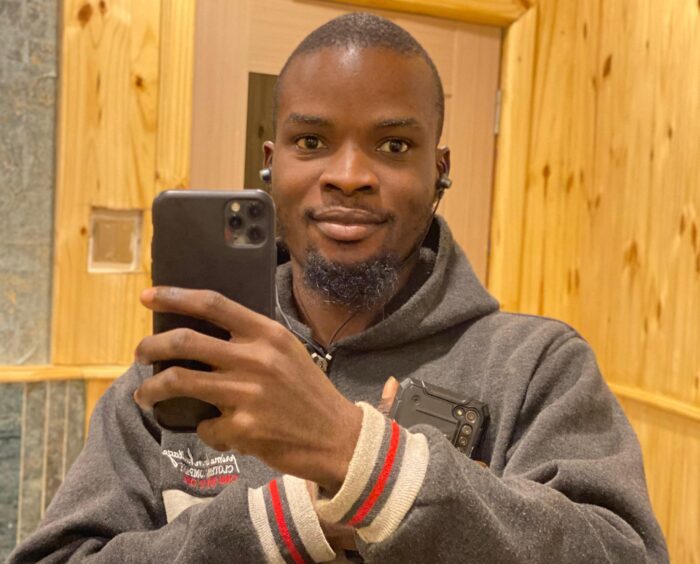Article of Faith
Sharia Courts In Southwest Nigeria: A Threat Or A Path To Peace? -By Abdulsalam Mubarak Adio
For those who wish to engage in this debate, let us prioritize the freedom and righteousness granted by our constitution. Let us remember that the Southwest is not another country division but a conventional and constitutional part of Nigeria. What benefits Christians should equally benefit Muslims. After all, Islamic banking operates under the law through shariah, and only Christians currently have the privilege of marriage certification under the same law. But the constitution provides an easy, government-monitored way for Muslims to access similar privileges through Shariah courts.

Is Islam really the “violent religion” some would have us believe? Shariah courts, an organized legal system grounded in Islamic law, are often misunderstood. Their focus is on Islamic principles related to worship, marriage, divorce, finance, and inheritance. In every instance, their priority is peace, for Islam itself is a religion that preaches harmony and tranquility.
In Nigeria, a nation that prides itself on religious freedom, all religions, including Islam, are granted the right to practice their beliefs within the bounds of the national constitution. However, a growing tension exists in the Southwest, as Shariah courts are being portrayed by some as a threat to other religions. This narrative demands the attention of Muslims who value the right to practice their faith freely and peacefully.
As a Muslim who has lived in Ibadan, the political hub of Southwest Nigeria, for nearly three decades, and as a peace ambassador across Africa, I see things from a different perspective. We are all Nigerians, entitled to our beliefs and opinions, as enshrined in the constitution. The notion that Islam threatens the wellbeing of Nigerians, or the rights of followers of other faiths, simply holds no water. There is no evidence, no reasonable argument, to support such claims.
We are aware that a Shariah panel has been operating at the Oja-Oba Central Mosque in Oyo State, without any indication of criminal activity or threats to other religions. The panel has been recognized for resolving Muslim marriage disputes through dialogue and conflict resolution, in line with Islamic principles. I recall my father coming home on Thursday nights to share the real-life experiences he gained from attending these Shariah sittings, insights that have greatly influenced my own approach to marriage as a young man today.
Indeed, the history of leadership in all religions whether Christian, Muslim, or otherwise, has seen its fair share of scandals. It is no secret that many Christian leaders, just like some Muslim leaders, have been embroiled in criminal activity. But we must ask ourselves: does the behavior of a few individuals represent the teachings of the religion as a whole? The same can be said for democracy. We have witnessed widespread corruption among elected officials, yet we do not blame the concept of democracy itself.
Christianity is built on the principles of holiness and righteousness, while Islam preaches peace and tranquility. Similarly, democracy seeks good governance and order. Yet, we have seen varying degrees of success in practicing these values. It is crucial to separate the ideals from the actions of individuals, as they are not always in harmony.
As law-abiding citizens, we must all recognize that no group or organization, regardless of political or religious affiliation, has the right to set up any system that contradicts the Nigerian constitution. That is why it is troubling to see individuals in the Southwest, using their influence and resources, attempting to challenge the peaceful initiative of Southwest Muslims to establish a Shariah panel aimed at facilitating domestic matters without harm or disruption. Why this resistance?
Let us be clear: Islamic banking and finance have contributed significantly to Nigeria’s economic growth by providing interest-free financial services, promoting financial inclusion, and attracting investments. As of 2020, the Islamic finance sector in Nigeria had grown to an estimated $2.6 billion, enhancing access to capital and supporting key sectors like infrastructure, agriculture, and SMEs, benefiting all Nigerians, regardless of faith. It is ironic that while some resist the Shariah courts, they readily embrace the financial aspects of Shariah law. Let’s be honest with ourselves, everyone benefits from this system, without fear or intimidation of the religion behind it.
For those who wish to engage in this debate, let us prioritize the freedom and righteousness granted by our constitution. Let us remember that the Southwest is not another country division but a conventional and constitutional part of Nigeria. What benefits Christians should equally benefit Muslims. After all, Islamic banking operates under the law through shariah, and only Christians currently have the privilege of marriage certification under the same law. But the constitution provides an easy, government-monitored way for Muslims to access similar privileges through Shariah courts.
For the sake of a peaceful, fair, united, and prosperous Nigeria, let us all strive to be law-abiding citizens, demanding our rights and fulfilling our duties to one another.
Abdulsalam Mubarak Adio
President, Peaceway Youth Initiative.
An initiative committed to empowering Nigerian youth through information, advocacy, and service.
Continue Reading










